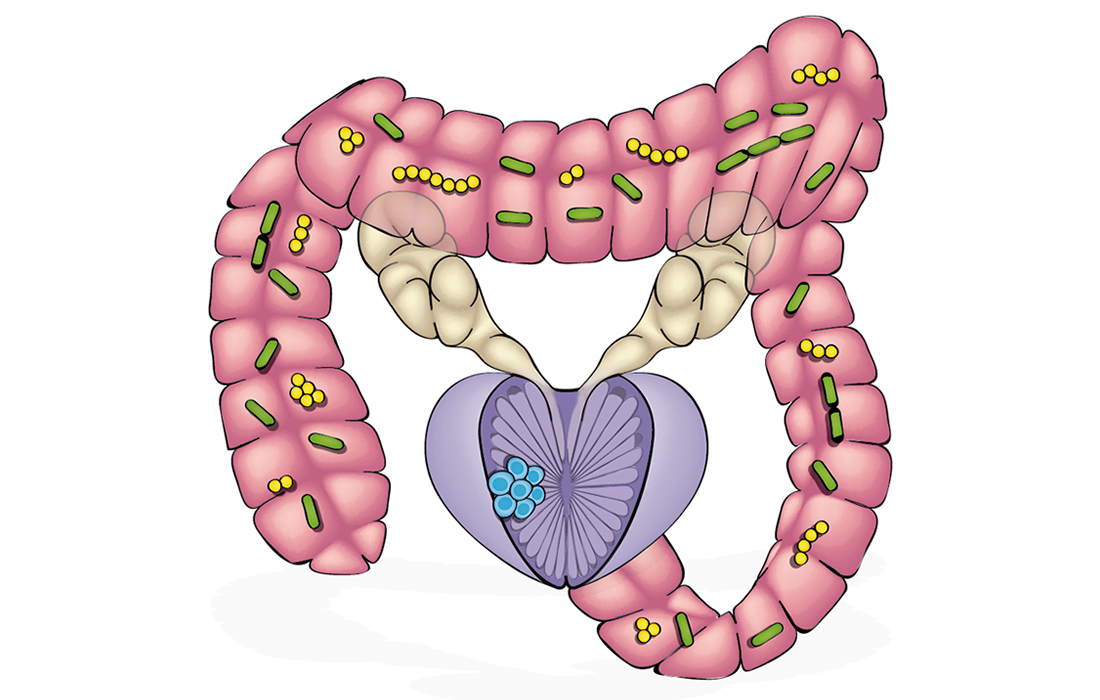Regenerative Medicine News and General Information
Study Links Gut Microbiome With Aggressive Prostate Cancer
A new study published in the journal Cancer Epidemiology, Biomarkers & Prevention by researchers from the Cleveland Clinic showed for the first time that diet-associated molecules in the gut are associated with aggressive prostate cancer, suggesting dietary interventions may help reduce the risk.
Prostate Cancer
Prostate cancer is cancer that occurs in the prostate. The prostate is a small walnut-shaped gland in males that produces the seminal fluid that nourishes and transports sperm.
Prostate cancer is one of the most common types of cancer. Many prostate cancers grow slowly and are confined to the prostate gland, where they may not cause serious harm. However, while some types of prostate cancer grow slowly and may need minimal or even no treatment, other types are aggressive and can spread quickly.
Prostate cancer that’s detected early — when it’s still confined to the prostate gland — has the best chance for successful treatment.
Research Study
The study included nearly 700 patients and researchers think that while more research will be necessary, their findings may have clinical implications for diagnosing and preventing lethal prostate cancer.
According to the study’s lead author they found that men with higher levels of certain diet-related molecules are more likely to develop aggressive prostate cancer and that as they continue their research in this area, their hope is that one day these molecules can be used as early biomarkers of prostate cancer and help identify patients who can modify their disease risk by making dietary and lifestyle changes.
The researchers studied baseline levels of certain dietary nutrients and metabolites (byproducts produced when a substance is broken down in the gut) found in patients’ blood serum prior to prostate cancer diagnosis. They compared serum levels between healthy patients and those who later received a prostate cancer diagnosis and died from the disease.
The researchers found that men with elevated levels of a metabolite called phenylacetylglutamine (PAGln) were approximately two or three times more likely to be diagnosed with lethal prostate cancer. This metabolite is produced when microbes in the gut break down phenylalanine, an amino acid found in many plant- and animal-based protein sources like meat, beans and soy.
They also found other 2 nutrients choline and betaine, found in animal products also were linked with increased risk for aggressive prostate cancer. These nutrients and gut metabolites were previously studied for heart disease and stroke. This is the first time that they have been studied for prostate cancer.
The research team will explore the reliability of using these metabolites as biomarkers for aggressive prostate cancer and how dietary interventions could modulate their levels and by doing so decrease the risk of the disease.
Sources:
Cleveland Clinic. “Cleveland Clinic study links gut microbiome and aggressive prostate cancer: Researchers uncover how diet, lifestyle modifications may lower risk of lethal disease.” ScienceDaily. ScienceDaily, 28 October 2021.
<www.sciencedaily.com/releases/2021/10/211028120417.htm>.
https://www.mayoclinic.org/diseases-conditions/prostate-cancer/symptoms-causes/syc-20353087
Image from:
https://www.nature.com/articles/s41585-018-0068-z

